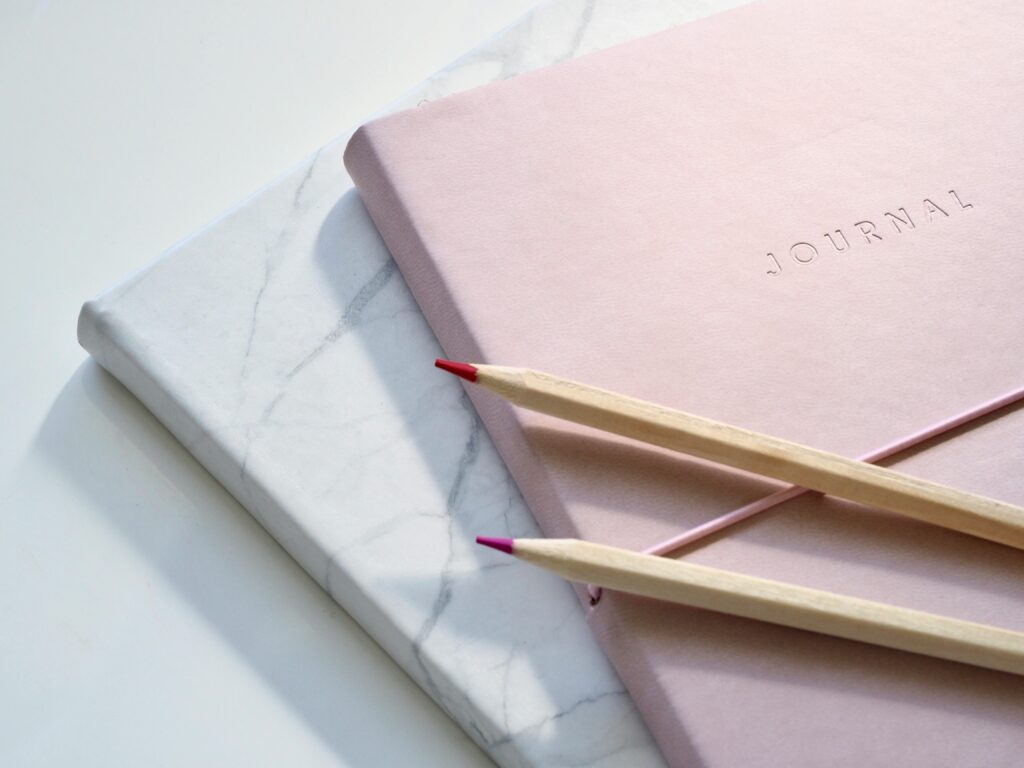By Mia Hairston, CETL Program Coordinator

Fall is the perfect time to jump-start a new self-care practice. Before midterms, daylight savings, and the winter blues creep in, journaling can be just the thing to promote grounding, peace, and connection with the present. Journaling is a reflective practice that can take many forms. It can take the form of a quick list that helps to clear mental clutter. A personal narrative, giving the writer space to relive experiences and process them differently, can serve as journaling. Some styles are more visual, calling for illustrations to capture ideas that words may not. The beauty of journaling is that there is no right or wrong way; it all depends on the writer and the intention behind their practice.
Journaling can provide personal benefits and a renewed pedagogical perspective. Due to its free-flowing nature and high level of expression, journaling can provide mental clarity, stress relief, and improved self-awareness. It can open the door to more authentic teaching, organizing ideas, and shaping content knowledge like never before. If there are lingering challenges in need of solutions, the continual reflection and release that journaling fosters can help to discover approaches never considered.
Julia Cameron, author of The Artist’s Way, promotes starting each day with a practice called Morning Pages. These daily handwritten pages allow the subconscious to roam freely, bearing all without direction, revision, or grammatical accuracy. Julia does not view Morning Pages as journaling in a traditional sense, but rather as a spiritual, meditative, non-judgmental exercise for creative recovery. When practiced consistently, morning pages have helped clear blocked energy, quiet negative thoughts, and feelings of self-doubt by freeing the subconscious and overcoming internal critique.
On a personal level, journaling can support therapeutic renewal, helping you show up in the world with more wholeness and presence. As a faculty member, you might use journaling to document high and low points of student engagement during weekly lectures. Whatever style of journaling you take on, clarity of mind and a fresh approach are on the other side of your practice. [Listed below are tips and prompts for journaling that will help set you on your way.]
Journaling Tips
- Set the stage: designate a time and place to nurture your practice. Think relaxing music and a new pen and notebook to get your practice off to a fresh start.
- Try journaling after meditation or a few deep breaths to help center your thoughts before writing.
- Set a specific goal, intention, or use a timer to add purpose and structure to your practice.
Faculty-Friendly Journaling Prompts
- What’s one small change I’d like to experiment with?
- If I were a student in my class, what would today’s biggest takeaway be?
- What moment in class felt most alive this week?
- How do my teachings connect to the University’s mission?
- What do I appreciate most about my students?